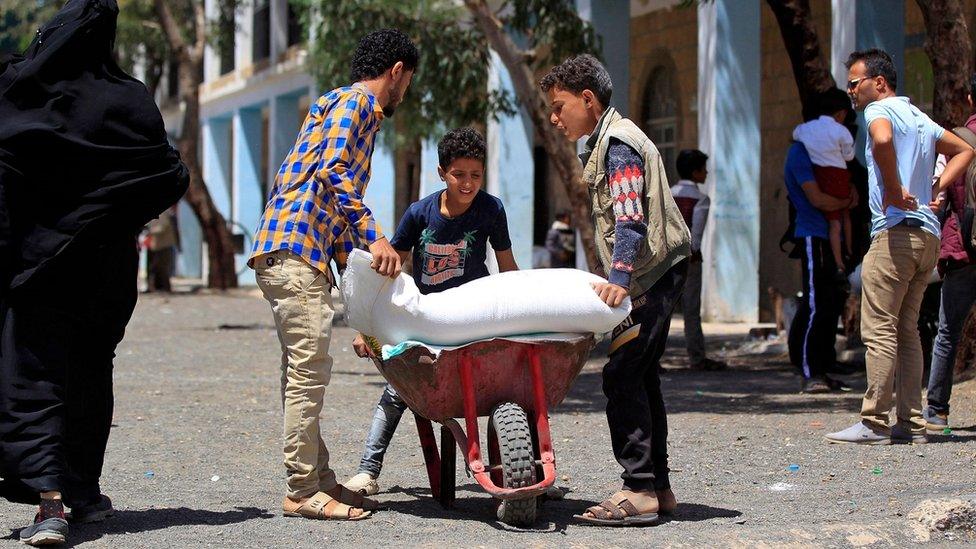Foreign aid: Covid costs mean we have to cut payments, says PM
- Published
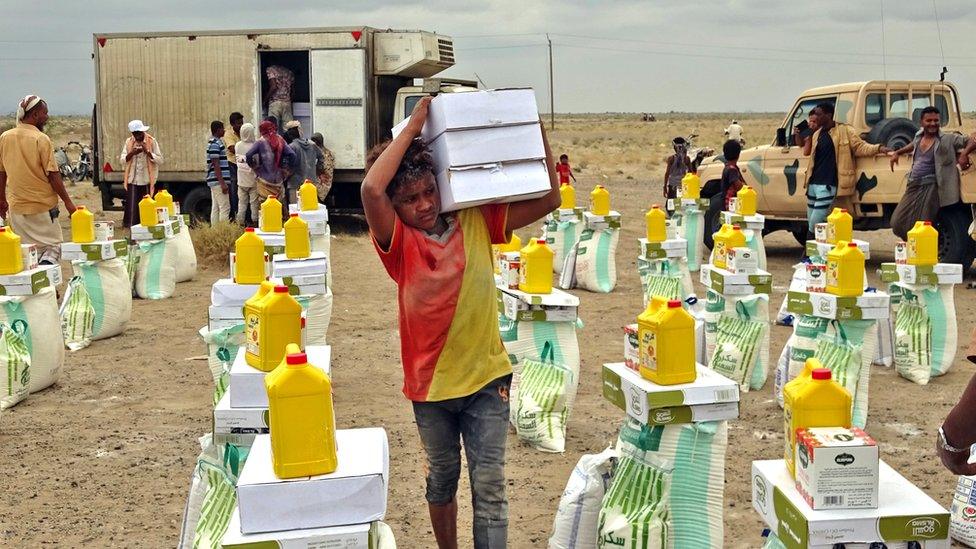
The UK gives much of its humanitarian aid to Yemen, with projects similar to this one run by a Kuwaiti charity
Boris Johnson has defended the government's decision to cut foreign aid, saying this is needed during the "economic hurricane" caused by Covid.
MPs are voting on whether to reverse the reduction on development spending from 0.7% to 0.5% of national income, brought in earlier this year.
Opening a Commons debate, the prime minister said this was a temporary cut made to help reduce public borrowing.
But Labour leader Sir Keir Starmer said it was "indefinite".
The government has faced cross-party criticism over the reduction, which amounts to almost £4bn.
Many Conservative MPs have spoken out against the move, announced last November despite a commitment to spending 0.7% in the party's 2019 election manifesto.
Meeting the 0.7% figure was made law in 2015, and it is an internationally recognised target, and charities such as Oxfam and ActionAid have warned that projects are being called off as a result of the cuts.
If MPs defeat the government in the vote, spending will revert to 0.7% of national income by January next year.
If the government wins, it will happen only when national debt is falling and borrowing is no longer used for day-to-day spending.
Last month, 30 Conservative MPs supported an amendment to a parliamentary bill, aimed at forcing the government to meet the 0.7% target.
If they oppose the cut again later, another 14 or so Tories would have to join them to ensure a government defeat.
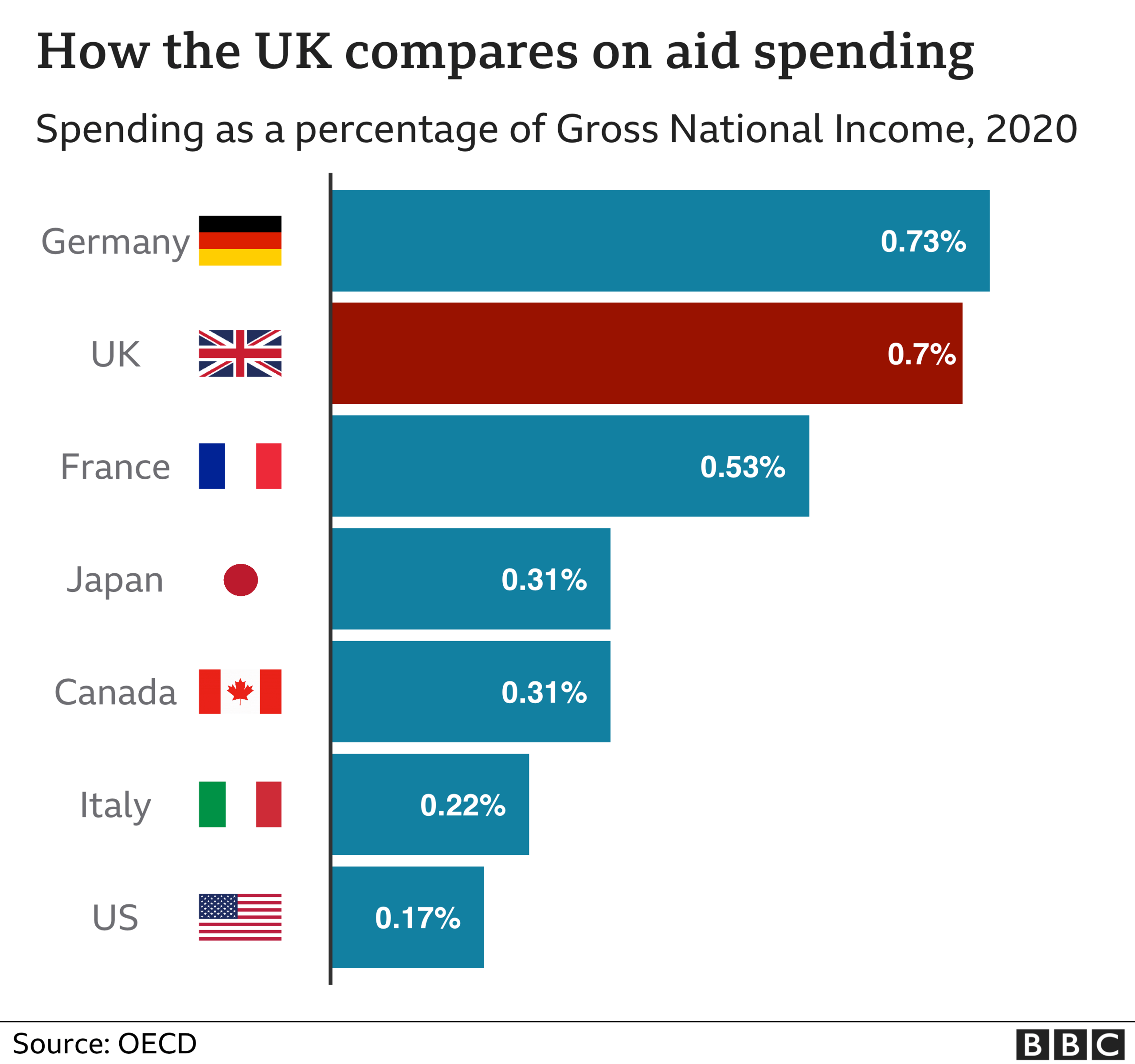
Mr Johnson told MPs ministers had spent £407bn during the pandemic to "shelter our people from an economic hurricane never before experienced in living memory".
He added: "There must inevitably be consequences."
The prime minister said that this year national debt was expected to reach 100% of economic output, "the highest for nearly six decades".
He added that the reduction was temporary and the UK could "take pride that the UK will still contribute at least £10bn of our GDP" to aid.
"This is not an argument about principle," Mr Johnson said. "The only question is when we return to 0.7% and my purpose today is to describe how we propose to achieve this shared goal in an affordable way."


Governments only call votes if they think they can win.
Ministers will hope the concession of a vote, the offer of clarity about when aid might increase and the lack of time their opponents have had to organise will give them an edge and soften the Tory rebellion.
When it comes to whipping, the Treasury also has deep pockets and who knows what goodies might be on offer to dissident rebel MPs in the upcoming Spending Review?
If the government wins, there will be consequences.
The current status quo is that Downing Street is under political pressure to return aid spending to 0.7% of national income next year.
But if the Treasury wins today, that will not happen. Aid spending will be locked in for years.
How long will depend not just on the economy, but on Treasury's tax and spend decisions and its interpretation of some rather loose tests.
Both sides in this debate accept UK aid cuts have a material impact.
It is just a question of priorities - responsible belt-tightening at home or generosity abroad. But if the UK cuts aid by £4bn every year, then millions overseas will suffer.

But Sir Keir, who confirmed Labour would vote against the government, said the cut was "not in the national interest", adding: "Every member here was elected on a manifesto promise to retain the 0.7% target."
"Every living prime minister thinks this is wrong," he added. "There is only one prime minister who is prepared to do this and he is sitting there."
He later added: "Cutting aid will increase costs and have a big impact on our economy. Development aid reduces conflict. It reduces disease and people fleeing from their homes.
"It is a false economy to pretend that this is some sort of cut that doesn't have consequences."
Former Conservative Prime Minister Theresa May, one of the Conservative MPs who have been highly critical of the cut, said she would also vote against the government, but "with regret".
"We made a promise to the poorest people in the world," she added. "The government has broken that promise."
And former Brexit Secretary David Davis called the cut to aid spending "morally reprehensible".
On Saturday, a group of philanthropists, including the Bill and Melinda Gates Foundation, said they would provide £93.5m emergency funding to cover some of the UK's reduction.

SCRUM V RUGBY: All the latest Welsh rugby news with Gareth Rhys Jones
QUEERTOPIA: GB rower Kyra Edwards shares her big and bold suggestion

Related topics
- Published12 July 2021

- Published12 July 2021
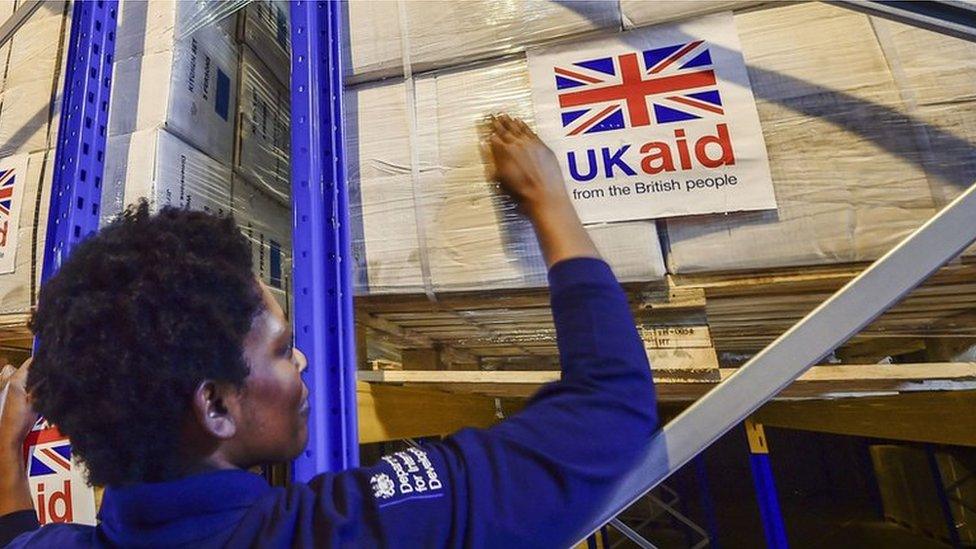
- Published11 July 2021
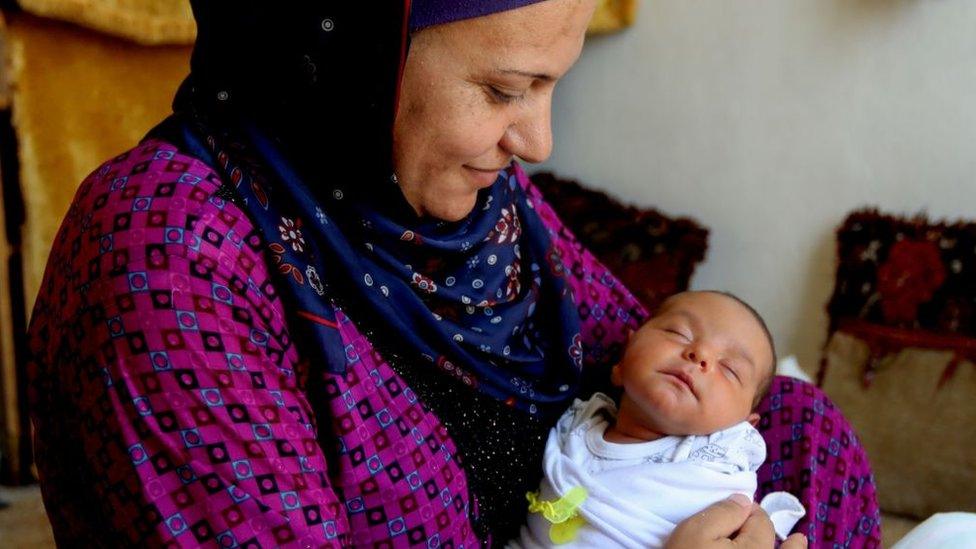
- Published7 June 2021
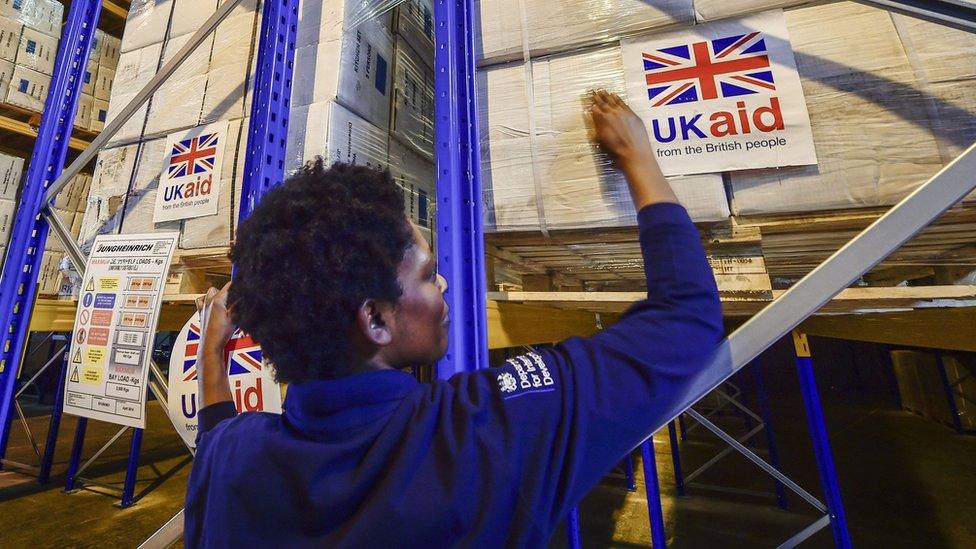
- Published8 November 2021

- Published6 June 2021
